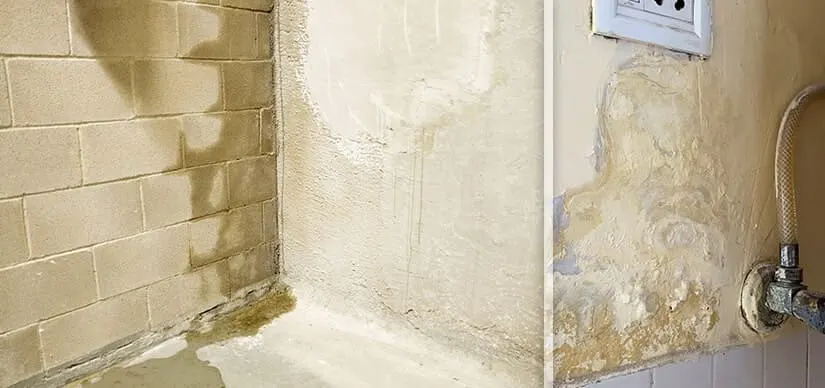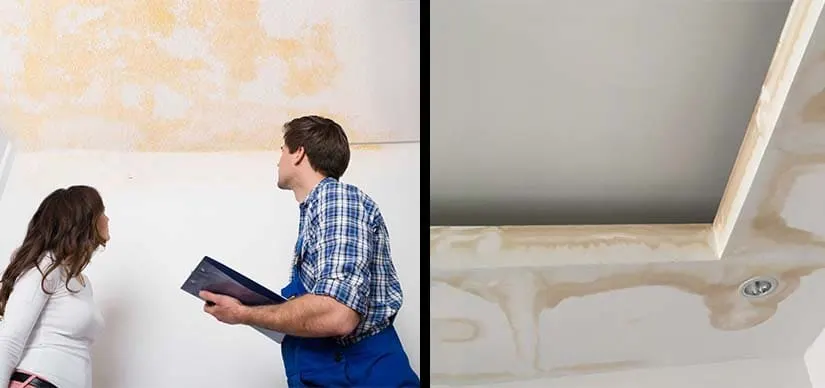5 Causes Of Water Leaks Behind The Walls
Views : 808

Water leaks in San Diego are a common problem and often go unnoticed until the damage has already been done, this can be an incredibly frustrating and costly problem.
Not only can they cause damage to the walls and flooring of your home, but they can also lead to mold and mildew growth, which can be hazardous to your family’s health. Understanding the causes of water leaks behind the walls is the first step to preventing and addressing them.
In this blog post, we’ll look at the five most common causes of water leaks behind the walls. Keep reading to learn more about water leaks in San Diego and how to protect your home from them.
1. Faulty Plumbing and defective pipes
One of the most common causes of water leaks behind walls is faulty plumbing and defective pipes. These problems can occur due to old or broken pipes, or when connections between pipes and fixtures are loose.
Over time, the seals around plumbing fixtures can wear out, resulting in water seepage through the walls. It is important to check your home’s plumbing system regularly to ensure that all pipes and connections are secure.
If you notice any signs of a water leak, such as dampness, discoloration, or mildew, it is best to call a plumber immediately to diagnose and repair the problem. Early detection can help prevent serious damage to your walls and ceilings.
2. Poor grout maintenance
Grout is the material that fills the gap between tiles, helping to make the tile surface waterproof. When grout becomes cracked or worn down, it can lead to water leaks behind walls.
Poor grout maintenance is a common cause of water leaks in San Diego, as grout can easily become worn down due to its lack of flexibility. In some cases, the grout may be too thin or weak, or it may even be missing altogether in some spots.
In addition, if you have an old bathroom with older tile, the grout used may not be as reliable as modern materials. It’s important to check your grout regularly for any signs of wear and tear, and if you do notice any problems, it’s best to call a professional plumber in San Diego right away.
3. Roof and balcony water leaks
Water leaks can also be caused by faulty seals around the roof and balcony. If your roof and balcony are not properly sealed, water can easily seep in and cause damage to the structure of your home. This can lead to moisture buildup and mold growth behind the walls.
To prevent this from happening, it is important to ensure that your roof and balcony are properly sealed to keep out moisture. This can be done by using caulking or weatherstripping on the edges of the roof and balcony.
It is also important to check the seal regularly to make sure it is still doing its job. If you find any cracks or gaps in the seal, they should be repaired as soon as possible.
Additionally, if you have a balcony, make sure that any drains or gutters are not blocked, as this can also lead to water leaks.
4. Bathroom seals and worn-out floor tiles
Bathroom seals and worn-out floor tiles can cause water leaks in San Diego. When the bathroom is constantly exposed to moisture and dampness, it’s easy for the tiles to become damaged and worn down over time.
Cracks can form in the seal between the wall and tile or between the shower or tub and tile, allowing moisture to seep in. In addition, aging tiles can be prone to water damage and create spaces where water can collect and seep through the wall.
This can lead to water damage behind the walls, which can be difficult to identify until it’s too late. The best way to avoid this issue is to inspect and replace your bathroom seals regularly, as well as keep an eye out for cracked or loose tiles.
5. Faulty pipes in nearby apartments
The pipes in nearby apartments can cause water leaks behind the walls. If your neighbor’s apartment has old or worn-out pipes, the water can easily travel through the walls and into your own unit.
This is especially true if there are cracks in the walls, which can act as a conduit for water to enter your space.
Furthermore, if the plumbing of both apartments shares a common wall, then any water leakage from the neighbor’s side can cause water damage on your side.
The best way to detect and address this issue is to inspect the pipes in both apartments and ensure that they are in good condition.
If the pipes are leaking, then you must get them repaired or replaced immediately. It is also important to regularly check the walls for any cracks or signs of water leakage, and seal them right away to prevent further damage.
Lastly, always keep an eye out for any plumbing issues in your neighbor’s apartment and inform them if you think they need to take corrective action.
How to protect your home from water leaks
There are many ways to protect water leaks from your home, consider these few tips:
1. Check for signs of water leakage in your home regularly. Look for wet patches on the walls, ceilings, and floors; any discoloration or staining; or mold and mildew.
2. Fix any plumbing problems as soon as you can. Get a professional to check for any loose pipes, faulty valves, or joints, and replace them as needed.
3. Check for poor grout maintenance and sealant gaps around bathroom fixtures and floor tiles. Re-grout or seal them with a waterproof silicone caulk.
4. Regularly inspect the roof and balconies for any damage that may lead to water leaks. If you see any cracks, holes, or deterioration, get them fixed right away.
5. If you live in an apartment building, ensure that the pipes running between your apartment and neighboring apartments are in good condition. If there is any damage, ask the landlord to repair it right away.
6. Install water sensors in areas prone to water leaks, such as basements, bathrooms, and kitchens. This will alert you if there is a water leak in your home so that you can take action quickly.
7. Install a backwater valve that prevents sewage from backing up into your home and causing water damage.
8. Consider installing a sump pump to pump out excess groundwater if you live in an area that experiences flooding.
9. Invest in home insurance to protect yourself against the cost of repairing water damage caused by plumbing problems or natural disasters such as floods or hurricanes.
Conclusion
Water damage is a major risk for homeowners, and it can pose a serious threat to the structural integrity of your property.
If you have water leaks in San Diego, these tips can help you identify the causes and take steps to contact a plumber immediately to ensure that the problem is rectified as quickly as possible and that you don’t experience further damage.

.jpg)

.jpg)
